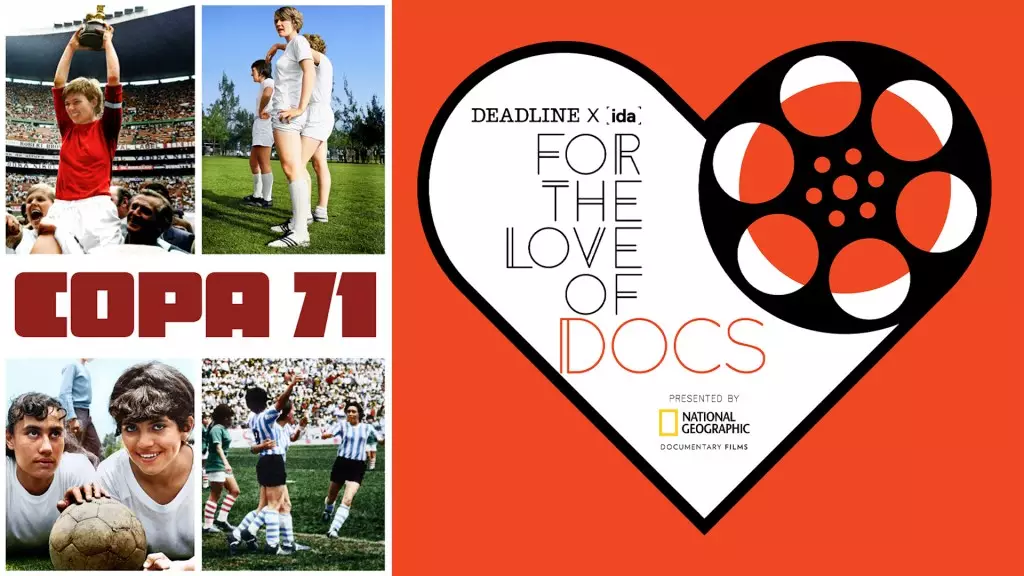In 1971, Azteca Stadium in Mexico City witnessed a pivotal moment in sports history—the unofficial Women’s World Cup. This remarkable event attracted over 110,000 enthusiastic fans, making it a benchmark for crowd sizes at women’s sporting events that still resonates today. Despite its significance, the tournament has remained largely obscured by history. A new documentary, *Copa 71*, brings this story to light, showcasing not only the tournament itself but also the societal and cultural contexts that shaped it and its subsequent neglect.
Directed by Rachel Ramsay and James Erskine, alongside producer Victoria Gregory, *Copa 71* sheds light on an event that has been criminally overlooked. Their journey began with a spark of interest ignited by a radio piece featuring a member of the England team. Gregory highlights the importance of storytelling in reclaiming this history, stating, “If it’s not been made into a documentary, you guys should be making it.” This quote succinctly encapsulates the filmmakers’ mission: to resurrect a narrative that deserves recognition.
The making of *Copa 71* was not without its challenges. Ramsay, Erskine, and Gregory faced the daunting task of locating archival footage and connecting with surviving players. Many of these athletes had long been silent about their experiences, often due to the stigma and negative portrayal they faced during the tournament. Gregory recalls initial reluctance from the England players, who questioned the motives behind the documentary: “Why now? Why should we trust you?”
This skepticism is understandable, given the treatment these women received from the media at the time. Journalists frequently reduced their talent to mere spectacle, focusing on their appearances rather than their skills. The documentary captures the tension between the empowerment of these female athletes and the misogyny they encountered, illustrating the pervasive culture of sexism that overshadowed their achievements.
As *Copa 71* unpacks this historical moment, it becomes a lens through which to view contemporary issues in women’s sports. The themes of power dynamics, financial independence, and media treatment echo through the film. Erskine notes that the environment surrounding Copa 71 reveals significant parallels to today’s discourse, particularly in light of recent incidents like that involving Spanish football leader Luis Rubiales, who was criticized for forcibly kissing a player during a medal ceremony.
Such incidents raise pressing questions about how much has truly changed in the landscape of women’s sports in the past 50 years. Ramsay articulates that the film tackles these issues head-on without manipulation: “You put that in there, you have the conversations about pay…and then you realize how little has changed.” The filmmakers aim to foster awareness and provoke discussions about the treatment and representation of women in sports, emphasizing the need for accountability within organizations like FIFA.
The massive viewership and attendance at Copa 71 highlighted the popularity of women’s sports and the potential for significant financial backing. Yet, the players themselves did not share in the profits generated from their hard work. The documentary highlights a moment when the Mexican women’s team went on strike, advocating for fairer compensation—a bold and necessary act for their rights as athletes.
Erskine points out that while economics play a role, the true struggle lies deeper: “It’s more about control and saying what people can and cannot do.” This notion connects to broader conversations about autonomy and self-expression for women in sports. The idea that women must navigate a biased system while seeking equality underscores the ongoing fight against patriarchal structures that persist within all areas of society.
*Copa 71* not only champions the athletes of the past but also calls for recognition of their contributions and struggles. By narrating this history, the documentary illuminates the long battle for equality in sports and society. The narratives of these women, once silenced, take center stage, reminding us that their fight continues today. As audiences engage with the film, they are encouraged to reflect on how far we have come—and how far we still must go—in advocating for women’s rights in all spheres of life.
The vitality of these discussions, both in *Copa 71* and beyond, highlights the importance of ongoing activism for gender equality in sports. Watching this documentary doesn’t just shed light on an underrepresented story; it revitalizes an entire movement, inspiring a new generation to champion the rights of female athletes. Each screening serves not merely as a retrospective but as a clarion call for change, urging society to eliminate the barriers that continue to hinder women in the world of sports.


Leave a Reply